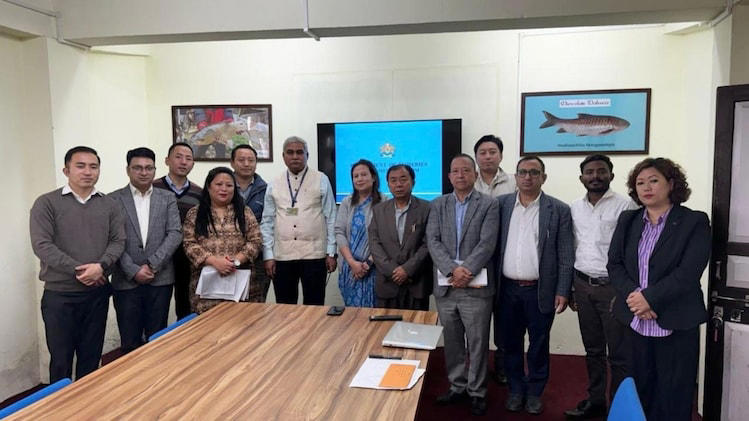State officials have embarked on a collaborative venture with the Director of the Indian Council of Agricultural Research (ICAR). This strategic partnership signals a concerted effort to leverage expertise and resources towards sustainable development and economic growth in the northeastern state. With its unique geographical features and abundant natural resources, Sikkim holds immense promise for the aquaculture industry, and this collaboration marks a significant step towards realizing that potential.
The initiative comes at a time when Sikkim is actively diversifying its economy beyond traditional sectors like agriculture and tourism. Recognizing the importance of fisheries in providing livelihood opportunities, ensuring food security, and promoting rural development, state officials have identified it as a priority area for investment and innovation. By partnering with the ICAR, renowned for its research and development initiatives in agriculture and allied sectors, Sikkim aims to tap into cutting-edge technologies and best practices to modernize its fisheries industry.
One of the key objectives of the collaboration is to enhance fish production through scientific methods and sustainable practices. The ICAR Director brings invaluable expertise in fish breeding, nutrition, disease management, and aquaculture techniques, which can help optimize production while minimizing environmental impact. By incorporating state-of-the-art technologies and research findings into local fisheries practices, Sikkim can improve productivity, quality, and profitability, thereby boosting the incomes of fish farmers and enhancing food security in the region.
Furthermore, the partnership aims to promote capacity building and skill development among stakeholders involved in the fisheries value chain. Through training programs, workshops, and knowledge-sharing initiatives facilitated by the ICAR, fish farmers, extension workers, and government officials can acquire new skills, adopt innovative techniques, and stay abreast of emerging trends in the aquaculture industry. This transfer of knowledge and expertise is essential for building a skilled workforce capable of driving the sustainable growth of Sikkim’s fisheries sector.
In addition to enhancing production and building capacity, the collaboration seeks to address challenges related to infrastructure, market access, and policy support. By working closely with state agencies and local communities, the ICAR Director can identify bottlenecks hindering the growth of the fisheries sector and recommend targeted interventions to overcome them. This may include investments in fish hatcheries, cold storage facilities, transportation networks, and market linkages, as well as policy reforms to create an enabling environment for fish farming enterprises.
Moreover, the partnership is expected to facilitate research and innovation in areas such as species diversification, value addition, and climate resilience. By conducting joint research projects and field trials, the ICAR and Sikkim’s agricultural research institutions can generate valuable insights into the local ecosystem, identify suitable fish species for cultivation, and develop customized solutions to address the challenges posed by climate change and environmental degradation. This research-driven approach will not only enhance the competitiveness of Sikkim’s fisheries sector but also contribute to broader scientific knowledge and sustainable development goals.
As Sikkim embarks on this collaborative journey to transform its fisheries sector, it holds the potential to serve as a model for other states grappling with similar challenges. By leveraging partnerships with research institutions, adopting a holistic approach to development, and prioritizing sustainability and inclusivity, Sikkim can unlock new opportunities for economic growth, poverty reduction, and environmental stewardship. The success of this initiative hinges on the commitment of all stakeholders to work together towards a shared vision of a thriving and resilient fisheries sector that benefits both present and future generations.

